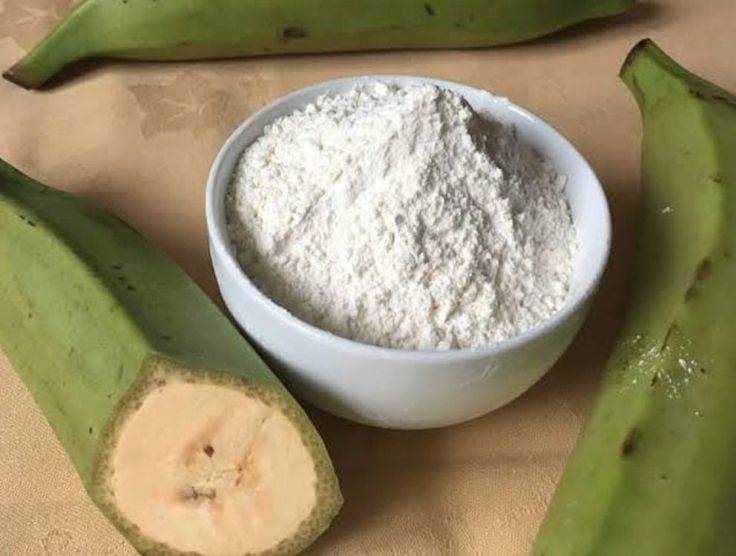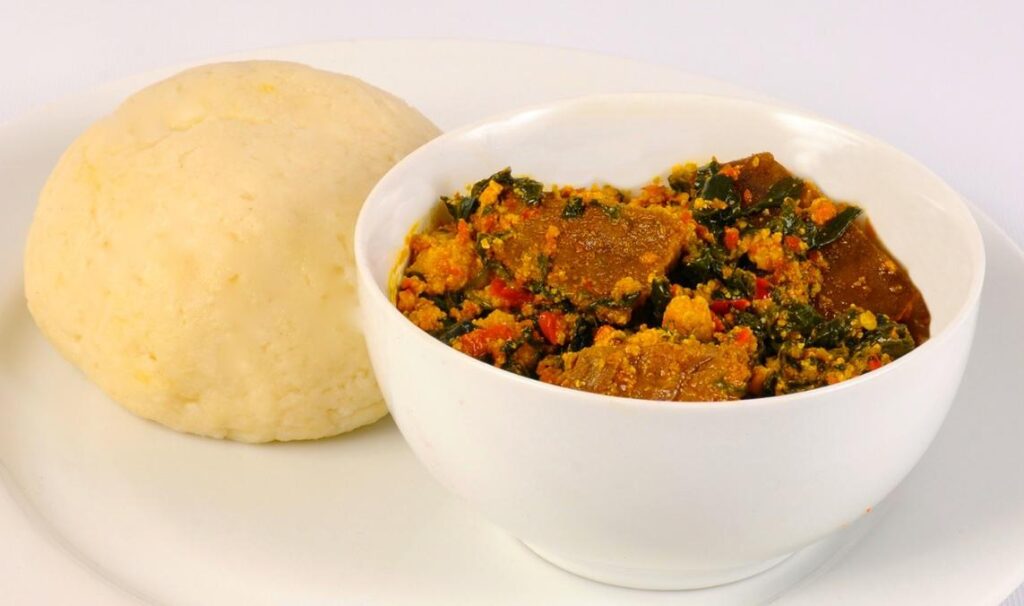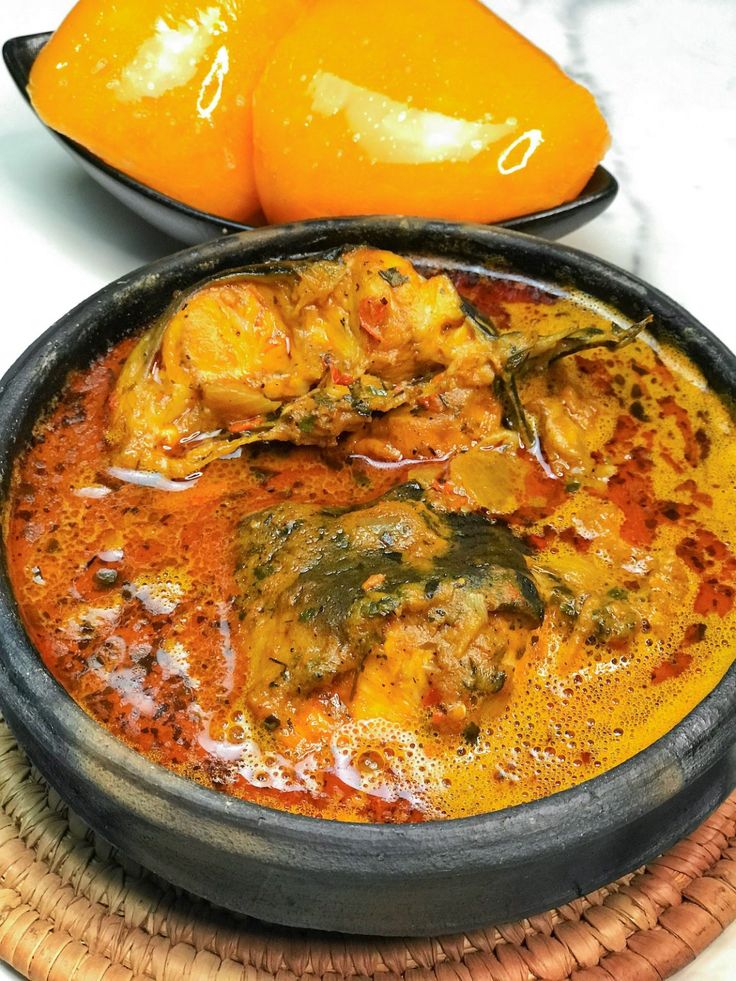Certain dishes have a special place in Nigerian homes, both in our hearts and on our dinner tables. Eba, with its silky texture and pleasant flavor, has long been a classic. However, as times change and culinary preferences shift, Nigerians are discovering a wide range of swallow options with distinct flavors, textures, and nutritional benefits. From pounded yam to plantain flour, bean flour to semolina, the world of Nigerian swallow is full of options.
The Enduring Appeal of Eba:
Eba, produced from cassava flour, has a special position in Nigerian cuisine. Its simplicity and versatility make it a popular choice among many households. Whether served with Egusi soup, okra soup, or another Nigerian delicacy, Eba is a comforting and pleasant addition to a variety of foods. Its smooth texture and neutral flavor make it the ideal vessel for soaking up rich and savory soups, making it a perennial favorite among Nigerians of all ages.
Alternative Swallow Options
Although Eba remains popular in many Nigerian households, the culinary landscape is changing to accommodate different tastes and nutritional requirements. Here are a few to consider:
(1). Pounded Yam:
Pounded yam is a popular Nigerian meal that requires cooking yam and pounding it till it’s smooth. Modern developments, such as quick pounded yam flour, make it easier to prepare. Pounded yam pairs well with soups like egusi and vegetable soup, making it a popular choice for gatherings and festivities.
(2). Plantain Flour: A Sweet Twist to Swallow
Plantain flour, prepared from dried and ground plantains, is a nutritious and gluten-free alternative to traditional swallowing methods. Plantain flour is a versatile ingredient that may be used to prepare various foods such as amala and fufu. It has a somewhat sweet flavor and is thick. Plantain flour is a nutritious option for health-conscious people looking to add more plant-based meals into their diet.

(3). Beans Flour:
Bean flour, made from ground beans, is a high-protein alternative to standard swallowing methods. Bean flour is high in fiber, vitamins, and minerals, and it delivers sustained energy while also promoting satiety. Swallow dishes created from bean flour, such as bean fufu, are a nourishing and substantial option for individuals wishing to diversify their meals while reaping the health benefits of beans.
(4). Semolina:
Semolina, made from durum wheat, is a popular choice for swallow in many Nigerian households. Its fine texture and neutral taste make it a versatile ingredient that can be easily paired with a variety of soups and sauces. Whether enjoyed as semolina fufu or as a base for pounded yam, semolina offers a convenient and satisfying option for busy families seeking quick and easy meal solutions

(5). Wheat Flour:
Wheat flour, a pantry staple in many kitchens, is a convenient and widely available choice for preparing swallow delicacies like as wheat fufu or wheat amla. Wheat flour’s moderate flavor and smooth texture make it ideal for experimenting with various flavor profiles and culinary combinations. Wheat flour, which is high in carbohydrates and important nutrients, is an excellent choice for fueling busy lives and promoting overall health and well-being.
(6). Starch:
Another traditional Nigerian swallowing choice is cassava starch, which has a distinct flavor and consistency. Starch, with its smooth and gelatinous consistency, is typically served with banga soup and other savory Nigerian foods. Its adaptability and ability to enhance a variety of soups make it a popular choice for Nigerians wishing to expand their swallow options.

(7). Amala:
Amala, made from yam or cassava flour, is a dark-colored swallow with a peculiar flavor. It’s commonly served with traditional Nigerian soups like ewedu or gbegiri. Amala’s earthy flavor and chewy texture lend dimension to any meal, making it a popular option among Nigerians, especially in the country’s southwestern area.

Embracing Diversity in Nigerian Cuisine:
As Nigerian cuisine evolves and adapts to shifting tastes and nutritional requirements, embracing the wide range of swallow alternatives provides up a world of culinary possibilities. Whether you love the warm familiarity of eba or the excitement of discovering new flavors and textures, Nigerian swallow delicacies have something for everyone.

